Dive into a world of ideas, stories, English and discovery.
Danny's Editorial
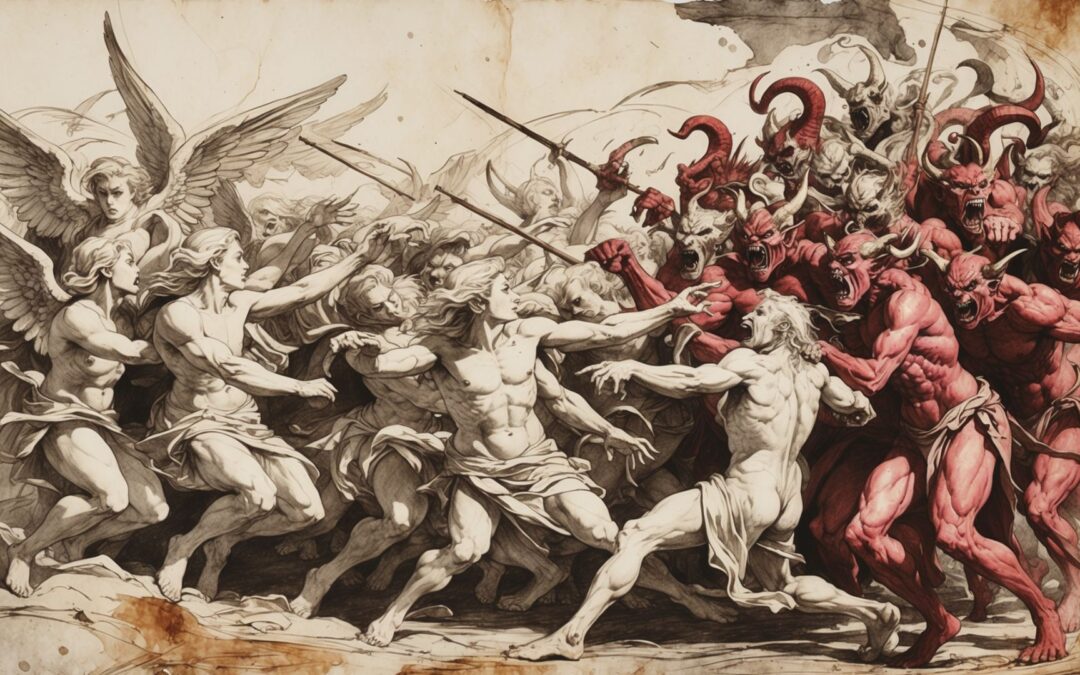
It’s Always About Angels and Demons
Ah, that familiar scent is in the air again. It’s the smell of freshly printed maps, polished podiums, and a marketing budget that could solve world hunger. Someone get the branding team on the line. The overture is playing, the stage is set, and it’s time for that grand, time-honored tradition that precedes the booms, the flashes, and the weeping: the Great Cosmic Rebranding.
You know the drill. It starts with a memo, probably marked “URGENT,” circulated among the hallowed halls of power. The memo, in essence, declares a grand casting call. Positions are open for “Absolute Good” and “Unspeakable Evil.” Don’t worry about the nuance in your application; it’s a liability. We’re looking for broad strokes, primary colors, the kind of stark, simple clarity you’d find in a children’s picture book.
Our side? Angels, naturally. Not just regular, run-of-the-mill good guys, but divinely sanctioned, morally unimpeachable beings of pure light, reluctantly taking up arms only because the universe—and history itself—has demanded it. Our motivations are as pure as driven snow on a mountain no one has ever been allowed to visit. We stand for noble concepts like ‘Freedom’ and ‘Justice’—always capitalized, of course—along with kittens, the laughter of children, and the inalienable right to perfectly buttery movie theater popcorn. We are the defenders of all that is decent and good. It says so right here on the brochure. The font is very reassuring.
The other side? Demons. A simpler, more elegant branding solution has never been conceived. They are a monolithic horde, spawned from the darkest, muckiest corners of existence. They hate freedom, despise justice, loathe kittens, and probably want to replace all popcorn with flavorless rice cakes. Their motives are a tangled, incomprehensible knot of pure, unadulterated malice. Why do they do what they do? Don’t ask. It’s unknowable. They are a force of nature, a plague, a blight upon the otherwise pristine garden of humanity. They are evil, capital ‘E’, trademarked and registered.
And just like that, the world is wonderfully, terrifyingly simple. Isn’t it a relief? Gone is the messy, agonizing burden of critical thought. Gone is the discomfort of ambiguity. Gone is the exhausting work of seeing the world in its infinite, complicated shades of gray. In its place, we have a clean, binary code: 1s and 0s, good and evil, us and them.
The media, of course, plays its part with commendable enthusiasm. Tune in to any channel, and you’ll find a panel of very serious people with very serious ties to very serious institutions explaining, with the patience one reserves for a particularly dense toddler, why our angels are so angelic and their demons so demonic. They have charts. They have graphs. They have grainy satellite photos that could be anything, but are presented as definitive proof of demonic infrastructure. They speak in a language of unwavering certainty, a dialect devoid of words like “perhaps,” “maybe,” or “it’s complicated.”
This isn’t a war, they’ll tell you. It’s a “special military operation.” It’s a “righteous crusade.” It’s “preemptive self-defense.” It’s “bringing stability.” The language is sanitized, shrink-wrapped, and made safe for public consumption, lest the raw, bloody reality of it all sour your appetite. The goal is to create a moral buffer, a sterile field between the decision and the consequence, so that we can cheer from the sidelines, waving our flags with clean hands and clearer consciences.
The strategy is brilliant, and it works like a charm. For a while. We rally behind our angels, our hearts swelling with righteous fury. We boo and hiss at the demons, our resolve hardened by their cartoonish villainy. We are united, purposeful, and absolutely, positively sure of our own goodness.
But then, a strange thing happens. A crack appears in the flawless facade. Through the static, through the carefully curated feeds and the state-sanctioned reports, a whisper from the other side emerges. And it sounds… familiar. Frighteningly so.
They, too, are speaking of angels and demons.
In their story, they are the reluctant heroes, the guardians of an ancient and sacred way of life. They are the ones protecting their children, their homes, their history, their honor. They are fighting a defensive war against an encroaching darkness, an existential threat bent on their annihilation. They are the angels.
And we? Well, you can probably guess. In their narrative, we are the monsters. We are the aggressors, the imperialists, the soulless, culture-destroying machine. We are the ones whose motivations are opaque, driven by greed and a lust for power. We are the demons.
It is in this moment of bizarre, horrifying symmetry that the entire construct shatters. The clean, simple binary collapses into a dizzying, nauseating paradox. When both sides are armed with the same unshakeable conviction that they are the forces of light fighting the forces of darkness, who is right?
The answer, which is the most profound casualty of any war, is that it ceases to matter what the “truth” is. Truth is a whisper in a hurricane. It is replaced by something far more potent and far more dangerous: belief. You simply choose which set of angels to believe in. You choose your demons. And once that choice is made, every action becomes justified, every atrocity explainable. Facts become inconvenient obstacles, to be bulldozed by the sheer force of faith in your cause. Empathy for the other side becomes a form of treason.
This is not to say that all claims are equal or that there is no such thing as right and wrong. Aggressors are real. Injustices are real. But the “angels and demons” narrative is a poison that blinds us to the humanity of those we are taught to hate. It is the essential anesthetic required to conduct the bloody surgery of war. It allows a young man to look at another young man, who is just as scared and just as convinced of his own righteousness, and see not a person, but a target. A demon to be vanquished.
But the word games, the marketing, the cynical analysis—it all has a shelf life. It evaporates in the heat of a burning home, in the face of the grim, unchangeable reality. Because beneath the flags, beneath the rhetoric, beneath the grand narratives of angels and demons, are people.
Flesh and blood.
They are not pawns on a chessboard. They are not statistics on a news report. They are not abstract concepts of “collateral damage.” They are breathing, feeling human beings whose lives are as complex, as precious, and as irreplaceable as your own.
There are no winners in war. There are only varying degrees of loss. A nation might “win” a piece of land, but it loses its sons and daughters. It might “win” a strategic advantage, but it loses a part of its soul. The victory parades march over unseen graves, and the triumphant speeches are drowned out by the silent screams of generations who will bear the scars. The true legacy of war isn’t etched in the stone of monuments, but in the empty chair at the dinner table that becomes a permanent member of the family; in the phantom ache of a lost limb; in the thousand-yard stare of a child who saw their world undone.
There is an ancient, profound wisdom, echoed in seemingly disparate traditions, that speaks to this very truth. The Talmud, a central text of Judaism, teaches that whoever saves a single life, it is as if they have saved an entire world. The Quran, the holy book of Islam, carries a verse with a similar, powerful message: whoever kills an innocent soul, it is as if they have slain all of mankind.
This is not a religious sentiment; it is a human one. It is the recognition that every single life is a universe unto itself—a cosmos of memories, loves, fears, and dreams. To extinguish one is to collapse a world.
So let them have their stories. Let the politicians posture and the generals strategize. Let them draw their lines on maps and sell their narratives of angels and demons. We must be wiser than that. We must understand that wars are almost always fought for the benefit of a powerful few—for land, for resources, for ideology, for ego—but they are always paid for by the many.
We must refuse to be fooled. We must refuse to see demons where there are only people. Because the life of one innocent person—a child, a parent, a baker, a teacher, on either side of any line—is worth more than all the flags, causes, and nations combined. Each life is its own world. To forget that is not just to lose a war; it is to lose our humanity.
Danny Ballan
Editor-in-Chief
English Plus Podcast
Learn English

Renewable Energy Breakthroughs | Listening Comprehension
Prepare for your English exam with this listening practice on renewable energy breakthroughs. Features a 1000-word lecture, 10 practice questions, and essential vocabulary.

How to Write a Compelling Company Overview for a Press Kit
Learn to write a powerful one-page company overview for a press kit. This step-by-step guide is perfect for entrepreneurs, marketers, and English exam learners.

The Role of Visual Art in Storytelling | Reading Comprehension
Explore the connection between visual art and storytelling while preparing for your English exam. This resource includes a challenging text, quiz, and key vocabulary.
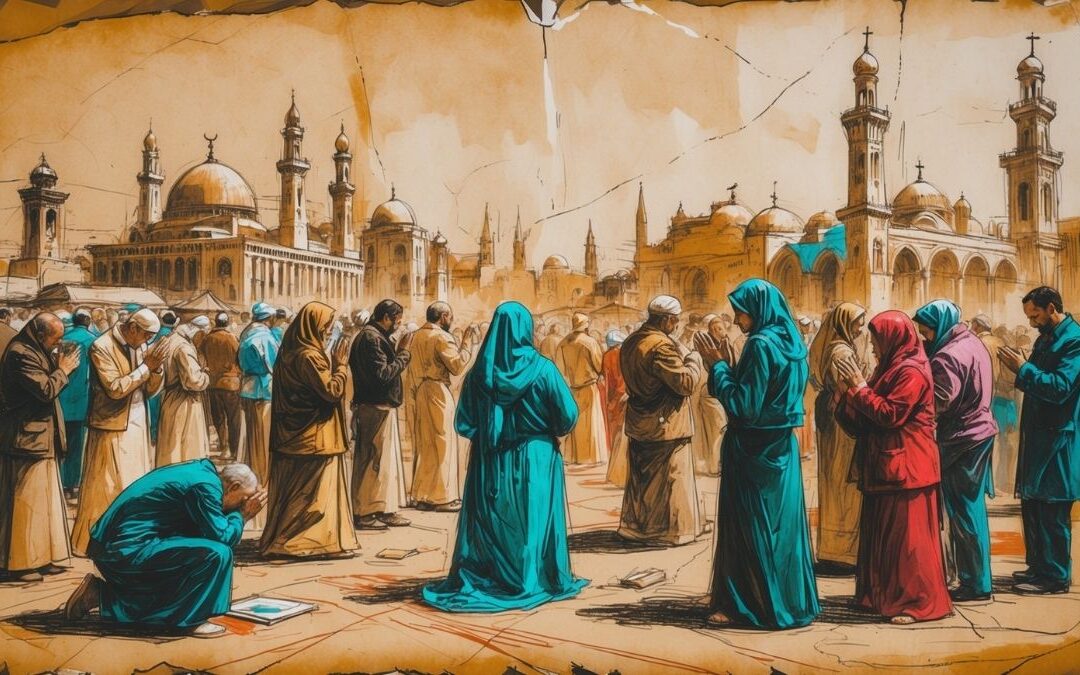
Advanced Grammar for Exam Success: The Influence of Religion on Societies
Achieve a higher score on your English exam. This guide provides a detailed grammar analysis of complex structures found in a text on religion’s role in society.
Plus Magazine

“The More, The Merrier”: Unpacking the Timeless Wisdom of a Beloved Proverb
Explore the surprising history and multifaceted meanings of “The More, The Merrier.” Discover how this proverb reflects human nature, collaboration, and the joy of shared experience.

The Franklin Expedition: Unlocking the Arctic’s Most Haunting Mystery
Dive deep into the chilling tale of the Franklin Expedition, the lost British polar venture that vanished in the Arctic. Discover the grim clues, modern discoveries of HMS Erebus and Terror, and the enduring mystery of its 129 doomed men.
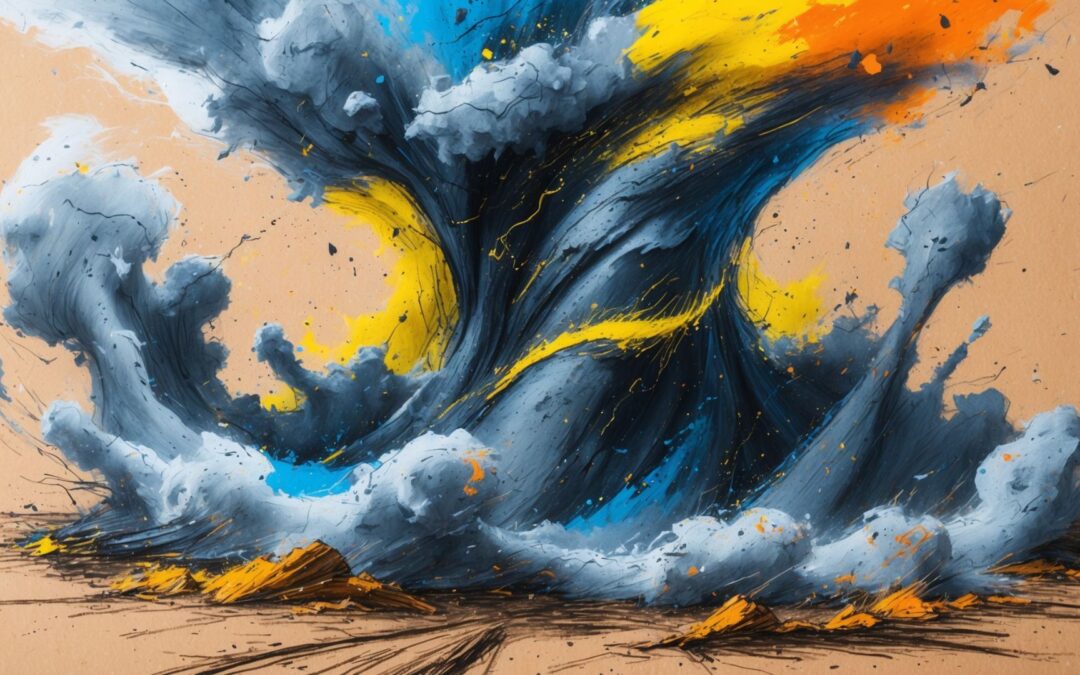
Tornado Secrets: What Really Happens Inside Nature’s Wildest Storms?
Ever wondered what’s truly inside a tornado? Dive into the terrifying physics, incredible forces, and hidden dangers of these swirling giants. Discover the science behind nature’s most violent vortex.

Ada Lovelace: The Unsung Visionary Who Programmed the Future
Discover the incredible story of Ada Lovelace, Lord Byron’s daughter, a brilliant mathematician, and the world’s first computer programmer. Explore her revolutionary insights into the Analytical Engine and her lasting legacy that continues to inspire innovation in the digital age.

Uranus: The Solar System’s Mysteriously Tilted Ice Giant
Explore Uranus, the enigmatic “sideways planet.” Discover why it spins on its side, its extreme seasons, icy composition, unique moons, and the call for new missions to this frigid frontier.

Libraries & Reading: Unlocking Potential in Education for All
Discover the vital role of libraries and reading in fostering cognitive development, empathy, and equitable access to knowledge. Explore how they remain indispensable cornerstones of modern education.
Tales & Tunes

The Endless Search for Faith: A Blind Believer
Explore the themes of faith, doubt, and the human need for belief in this engaging literary commentary on A Blind Believer by Danny Ballan. Dive into the questions that challenge our understanding of divinity and self-responsibility.

A Broken Wing: A Poetic Reflection on Freedom, Fear, and Letting Go
Discover the deep themes of love, loss, and freedom in Danny Ballan’s poem A Broken Wing. This literary commentary explores the human condition through a simple yet profound story of a wounded bird and its rescuer.

The Case of the Crimson Glove | Short Story
Detective Marlowe finds a crimson glove at a chilling crime scene, but the glove’s secret points to something far bigger—and far deadlier. What lies at the harbor at 3 a.m.?

Exploring The Bell Jar by Sylvia Plath: A Timeless Masterpiece
Discover the themes, impact, and enduring legacy of The Bell Jar by Sylvia Plath, a powerful exploration of mental health, identity, and societal pressures.

The Tale of Cupid and Psyche: A Roman Myth of Love and Trials
Discover the Roman myth of Cupid and Psyche, a tale of love, betrayal, and redemption. Explore its themes, symbolism, and enduring legacy in mythology.

Narcissus and Goldmund by Hermann Hesse: A Tale of Opposing Paths
Explore Narcissus and Goldmund by Hermann Hesse, a timeless story of friendship, philosophy, and the clash between intellectual and sensual pursuits.
Our Daily Quizzes
English Quizzes
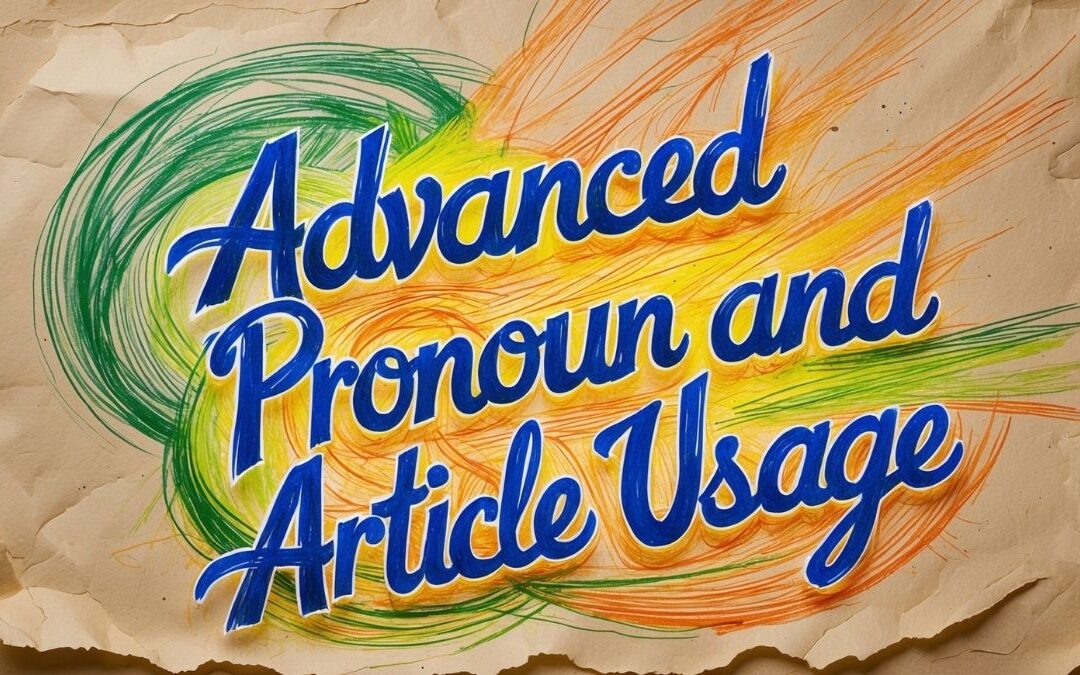
Do you make these common-but-subtle grammar mistakes?
Elevate your English fluency with this interactive quiz on advanced pronoun and article usage. Learn the tricky rules of ‘the’, ‘a/an’, ‘who’, ‘whom’, and more in real-life contexts.

Are you ready to elevate your academic writing and discussion?
Enhance your academic English vocabulary for social research with this interactive quiz. Learn key terms in context, get detailed feedback, and master the language of scholarly success.
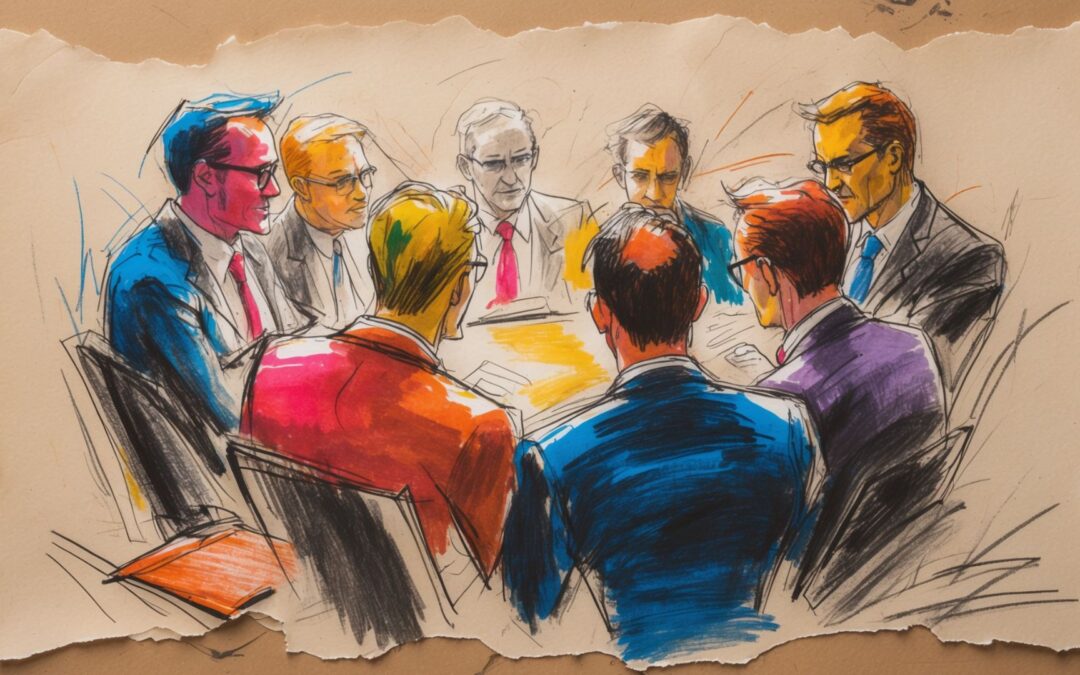
Do You Speak the Language of Leadership? Test Your Management Vocabulary
Elevate your Business English with our interactive quiz on essential leadership and management vocabulary. Learn key terms in realistic scenarios to help you delegate effectively, empower your team, and communicate like a true leader.
Knowledge Quizzes
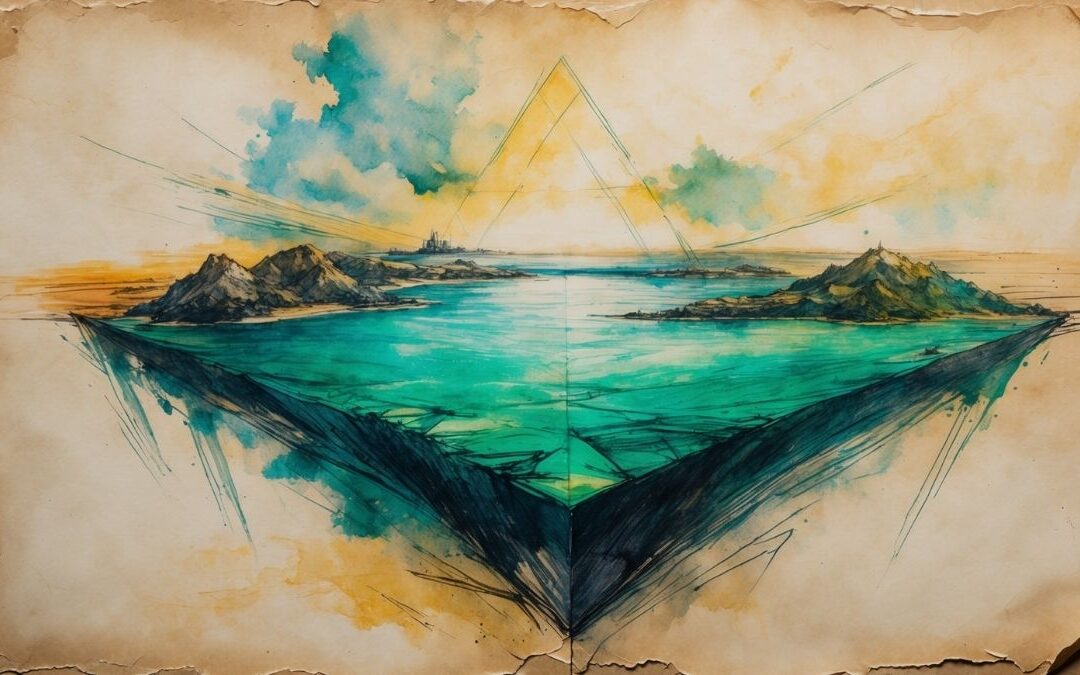
Is the Bermuda Triangle a paranormal vortex or the world’s greatest myth?
Take our interactive quiz to navigate the myths and realities of the Bermuda Triangle. Discover the scientific explanations behind the famous disappearances and see if you can separate fact from fiction.

Think you know the secrets of the pyramids?
Journey back in time with our interactive quiz and uncover the fascinating truths about Ancient Egyptian pharaohs, gods, and daily life. This isn’t just a test; it’s a story waiting to be discovered.
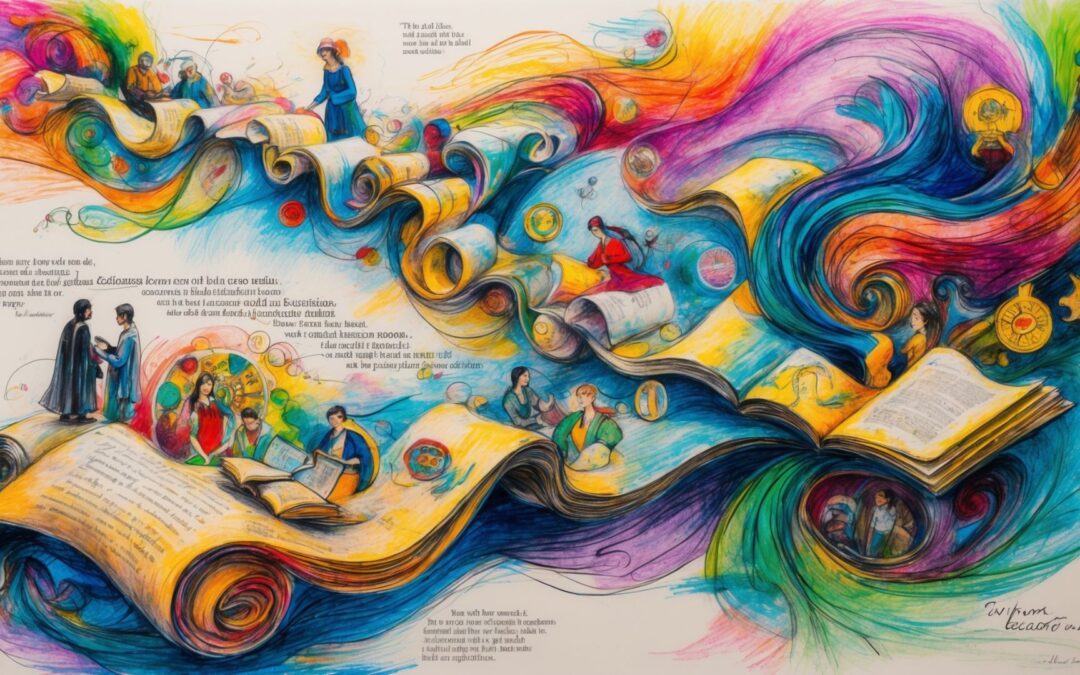
Why Do We Go to School? A Fun Quiz on the History of Education
Ever wonder why schools are the way they are? Take our fun, interactive quiz to explore the fascinating history of education, from ancient Greece to the modern classroom, and discover the origins of how we learn.
